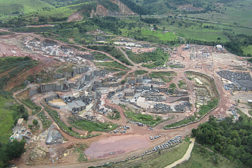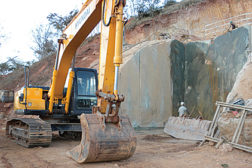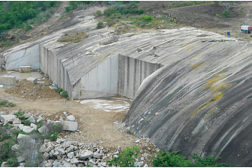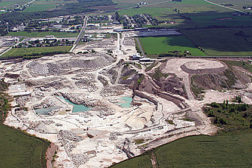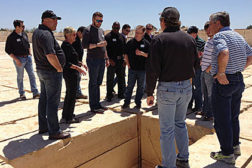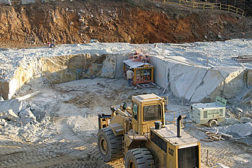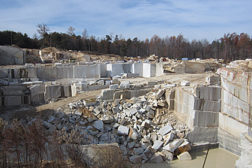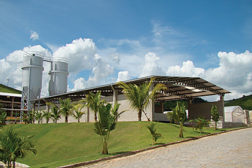Quarrying Sites
A continually expanding palette
In business for 35 years, Gramil of Cachoeiro de Itapemirim, Espirito Santo, Brazil, has steadily increased its level of production and its quarrying efforts, including a state-of-the-art operation for extracting white quartzite in the state of Ceará
June 3, 2013
A broad spectrum of Brazilian stone
Always on the lookout for unique stone materials in Brazil, Mag Ban of Cachoeiro de Itapemirim, Espírito Santo, Brazil, now owns a total of 16 quarries throughout the county
June 3, 2013
Making its name in Brazilian stone
With two company-owned quarries and automated stone-processing technology, PBA Stones has become a player in the international marketplace
June 3, 2013
A growing family of quarries
Eden Stone Co. and Valders Stone and Marble, Inc. cover a large area and an even larger market with their production
May 1, 2013
Carrying on the tradition of Arkansas limestone
With a history dating back to the 1800s, the Ozark Southern Stone quarry in Beaver, AR, has produced limestone for classic structures in the area and continues to supply current projects across the U.S.
May 1, 2013
TexaStone Quarries hosts “Stone Extravaganza”
Last month, a group of architects and students gathered at TexaStone Quarries for hands-on education in the quarries and fabrication facilities
May 1, 2013
Breathing new life into American soapstone
Alberene Soapstone of Schuyler, VA, is producing high-quality slabs of American soapstone
March 1, 2013
Our eNewsletters are a rock solid source of industry insights!
Stay in the know on the international stone and tile industry trends.
JOIN TODAY!Copyright ©2024. All Rights Reserved BNP Media.
Design, CMS, Hosting & Web Development :: ePublishing
